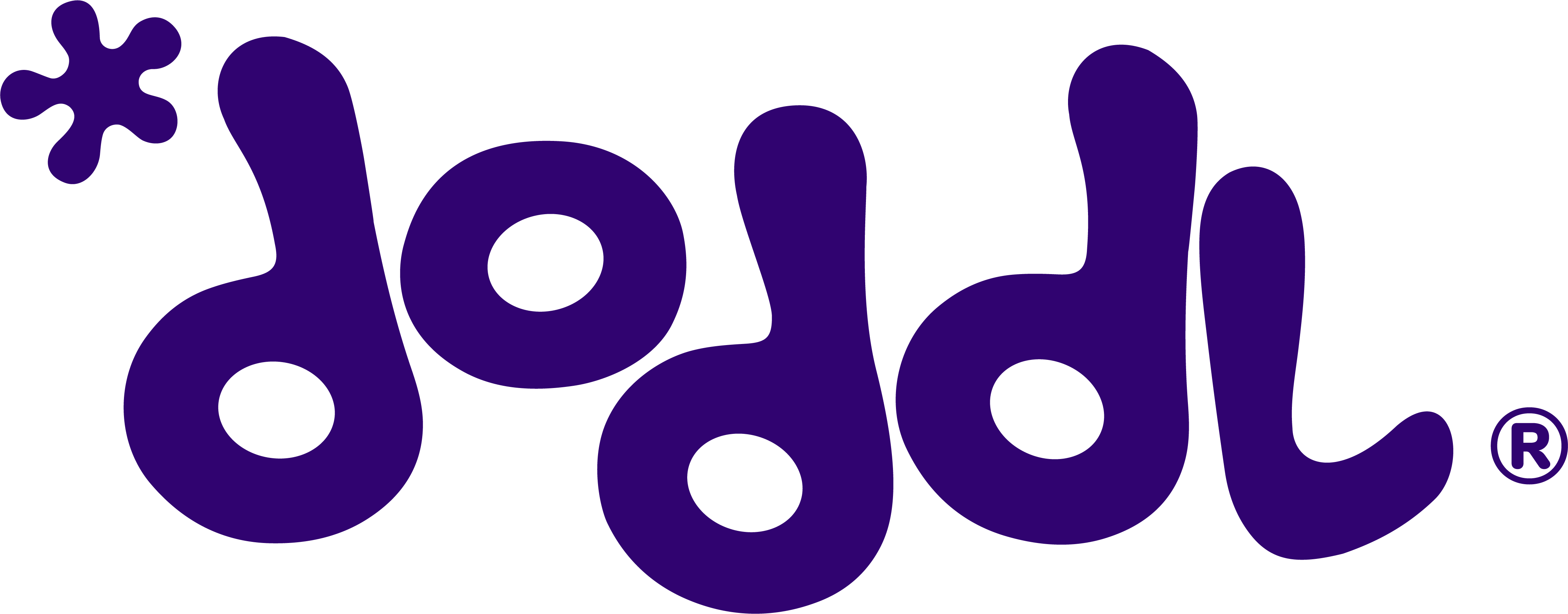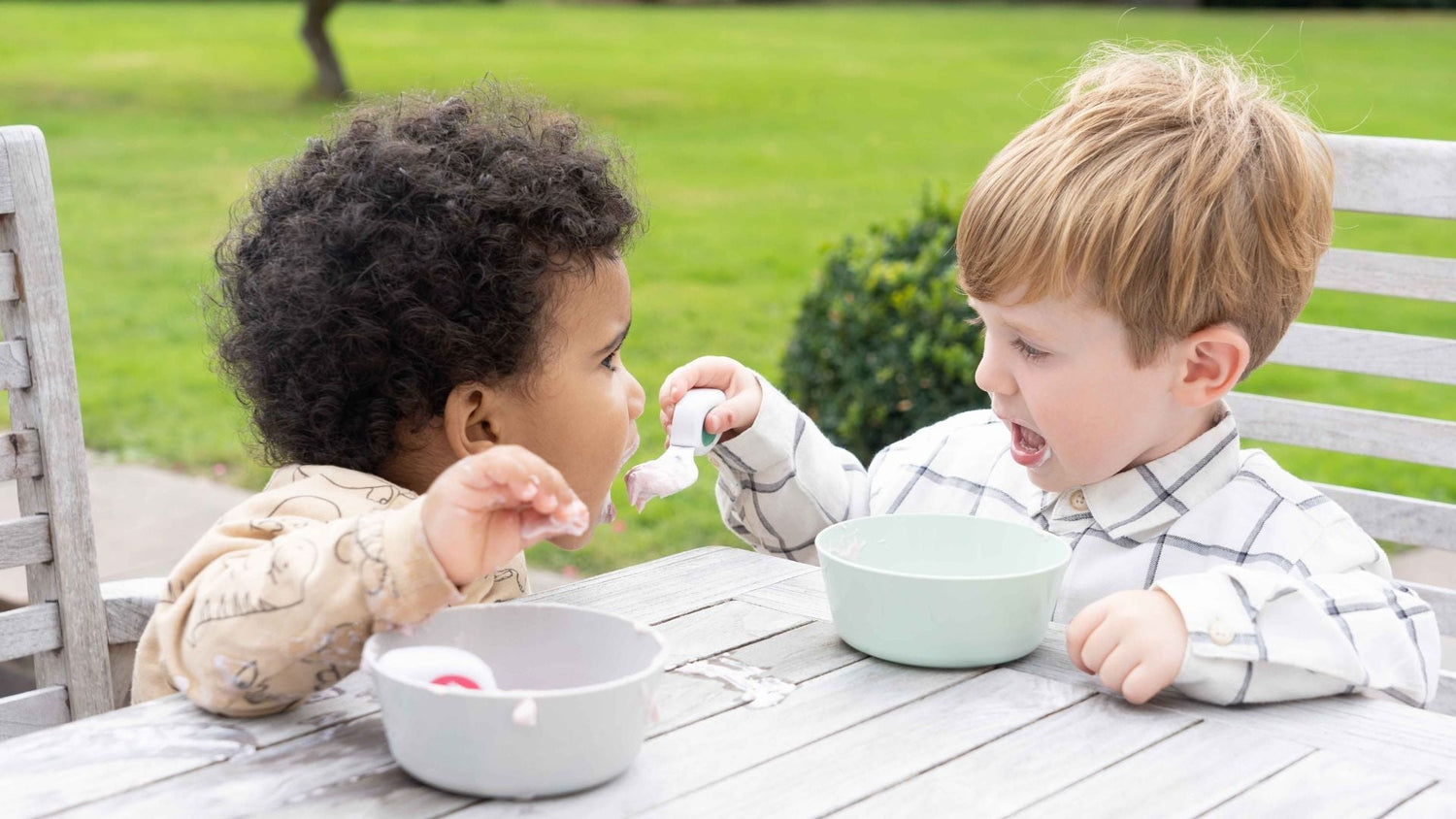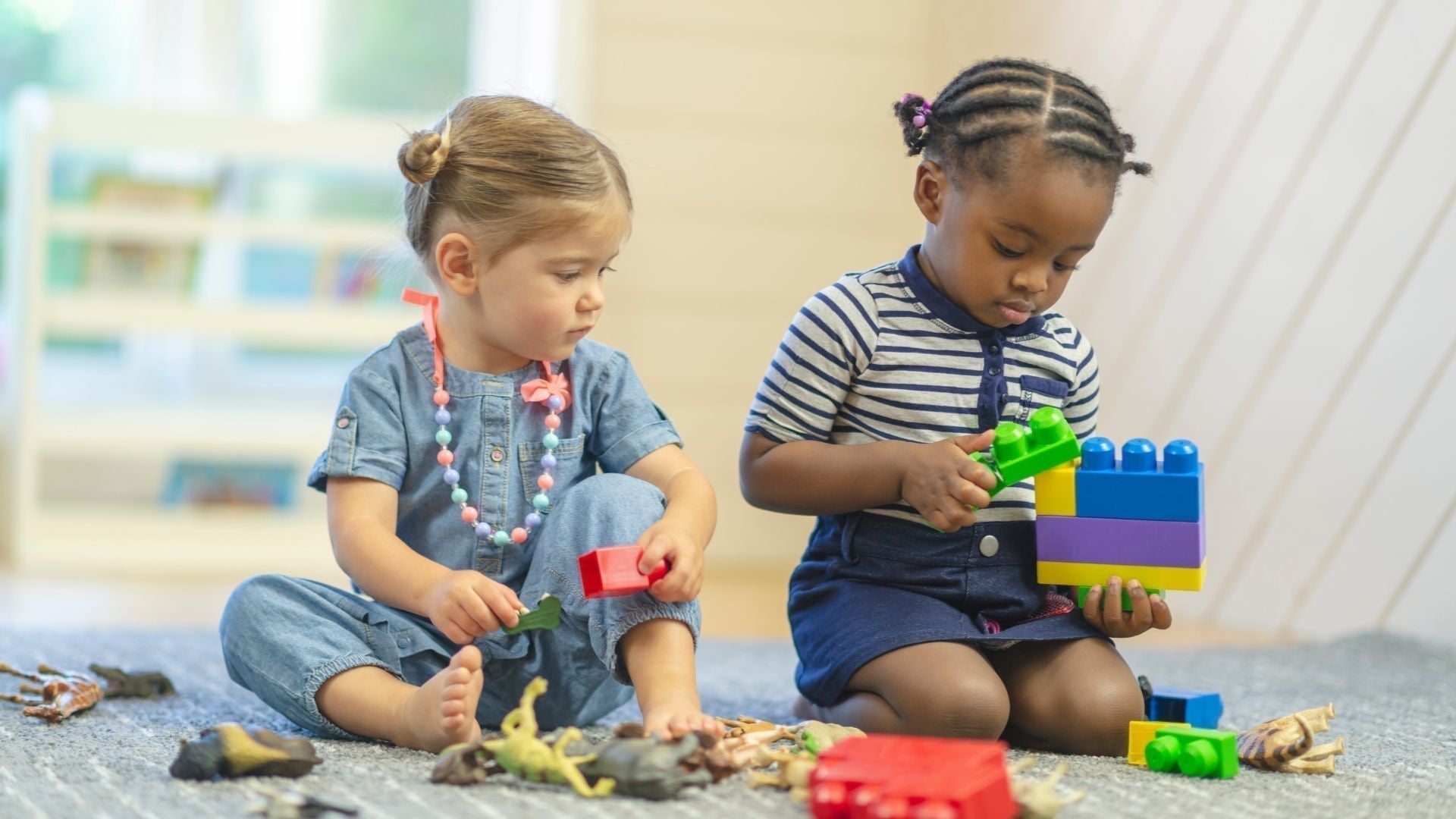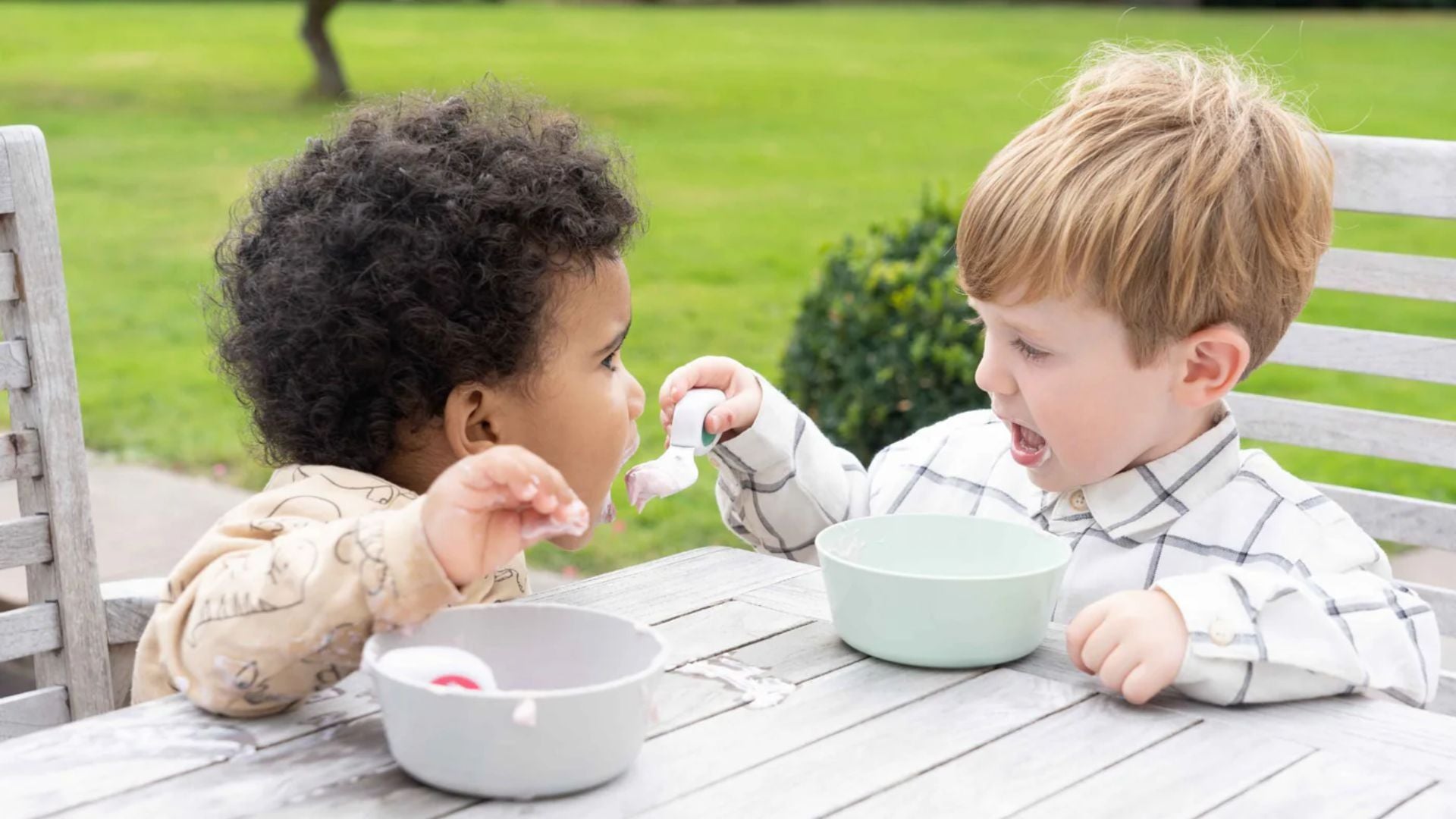Watching your little one grow from a babbling baby to a chatty toddler is like witnessing a small miracle unfold daily. As your child approaches their second birthday, you might find yourself wondering: what should a two-year-old be doing developmentally? Are those tantrums normal? And how on earth do you keep up with their ever-growing needs?
Every child's journey is unique, but there are some common milestones that most two-year-olds reach. In this comprehensive guide, we'll explore the world of two-year-old development, covering everything from:
- Physical progress
- Social skills
- Language development
- And some tips on how to support your little one's growth
So, grab a cuppa (or whatever fuels your parenting adventures), and let's dive into the wonderful world of toddler milestones.
Physical development

Remember when your little one took their first tentative steps? Well, hold onto your hats, because by age two, most toddlers have transformed into non-stop motion machines!
At this stage, your two-year-old is likely:
- Walking, running, and climbing with increasing confidence
- Kicking a ball (though their aim might be a bit... creative)
- Starting to jump with both feet
- Able to walk up and down stairs while holding onto the railing (or your hand)
- Beginning to stand on tiptoe
- Possibly starting to pedal a tricycle
It's not just the big muscles getting a workout. Fine motor skills are developing too. But what exactly are fine motor skills? They're the precise movements of the hands and fingers that allow us to do tasks like writing, buttoning clothes, or picking up small objects. Think of them as the 'detail work' of physical development.
Many two-year-olds are honing these skills and can:
- Hold a crayon and scribble enthusiastically (walls beware!)
- Build towers of 4 or more blocks
- Turn pages in a book (though perhaps not always one at a time)
- Start to use child-safe scissors
- Begin to dress and undress themselves (though they might need help with buttons and zips)
These seemingly simple tasks are actually complex movements that require coordination between the brain and small muscles. They're crucial for your child's independence and will continue to develop as they grow.
Remember, every child develops at their own pace. If your little one isn't ticking all these boxes yet, don't worry. The important thing is progress, not perfection. Providing opportunities for your child to practise these skills through play and daily activities can help support their development.
Cognitive development
Two-year-olds are like tiny scientists, constantly experimenting with the world around them. Their cognitive skills are blossoming, and you might be surprised at how much they're taking in!
At this age, most toddlers:
- Understand and respond to simple instructions
- Begin to sort objects by shape and colour
- Start to engage in pretend play
- Remember and talk about recent events
- Recognise familiar pictures and people in photos
- Start to understand basic concepts like "big" and "small"
- Begin to show an interest in counting and numbers
You might notice your little one becoming more interested in solving simple puzzles or figuring out how toys work. This is all part of their cognitive development.
Tip! Encourage this curiosity - it's laying the groundwork for future learning!
It's worth noting that while some two-year-olds might start recognising a few letters or numbers, this isn't typically expected at this age. If your child isn't showing interest in these areas yet, don't worry. There's plenty of time for that later.
Language development

Hold onto your ears, because this is often when the floodgates of language really open! While every child's language development milestones are unique, many two-year-olds:
- Use 50 or more words (and some might use up to 300!)
- Put two words together to form simple sentences ("More milk!")
- Name familiar objects and body parts
- Follow two-step instructions ("Pick up the toy and put it in the box")
- Start to use pronouns like "I," "me," and "you"
- Begin to ask simple questions, often starting with "what" or "where"
- Repeat words they hear in conversation
Don't be surprised if your little one's vocabulary seems to explode overnight. It's common for language skills to develop in spurts at this age. And remember, understanding often comes before speaking, so your child likely comprehends more than they can express.
If you're concerned about your child's language development, it's always worth discussing with your GP. Some children might benefit from early intervention if they're not meeting language milestones.
Social and emotional development
Ah, the infamous "terrible twos". But let's reframe that, shall we? This stage is really about your child learning to navigate big emotions and social situations. It's not always smooth sailing, but it's an important part of growing up.
At two years old, most children:
- Show increasing independence (hello, "I do it myself!" phase)
- Begin to play alongside other children (though not always cooperatively)
- Show a wide range of emotions, including empathy
- May have frequent tantrums (deep breaths, parents!)
- Start to assert themselves and may be prone to saying "no"
- Begin to show defiant behaviour as they test boundaries
- Become more aware of themselves as separate individuals
- Start to show pride in accomplishments
This is a great time to start teaching emotional regulation. Simple techniques like deep breathing or naming feelings can be helpful. And remember, your calm presence is their best teacher.
It's important to note that while tantrums and defiant behaviour are normal at this age, excessive aggression or inability to calm down might be cause for concern. If you're worried about your child's emotional development, don't hesitate to seek advice from a healthcare professional.
Feeding skills

Speaking of independence, mealtimes can be a great opportunity for your two-year-old to flex their growing skills. Many children at this age:
- Can use toddler cutlery (though messily)
- Drink from an open cup with minimal spilling
- Show preferences for certain foods
- Might become picky eaters (a normal phase, but challenging for parents!)
- Can help with simple food preparation tasks, like stirring or pouring
Encouraging self-feeding can boost your child's confidence and motor skills. Using toddler-friendly cutlery, like ergonomically designed utensils, can make this process easier and more enjoyable for everyone involved.
Remember, it's normal for appetite to fluctuate at this age. If you're concerned about your child's eating habits, always consult with your GP.
Sleep patterns
Sleep can be a hot topic for parents of two-year-olds. While every child is different, most two-year-olds need between 11-14 hours of sleep in a 24-hour period, including naps. Here's what you might expect:
- Many two-year-olds still take one nap a day, typically lasting 1-3 hours
- Bedtime resistance can be common at this age
- Some children might start having sleep disorders like sleep apnea or night terrors
- Sleep regression - a period when a child who has been sleeping well suddenly starts waking up at night, fighting bedtime, or having trouble with naps - can occur, often due to developmental leaps or changes in routine
Establishing a consistent bedtime routine can be helpful. This might include a b ath, story time, and cuddles. Remember, every child's sleep needs are different, so find what works best for your family.
Toilet training
Some two-year-olds might show interest in using the potty, while others won't be ready until later. Signs of readiness include:
- Staying dry for longer periods
- Showing interest in the bathroom habits of others
- Communicating when they need to go
- Being able to pull pants up and down
Remember, there's no rush. Many children aren't fully toilet trained until age 3 or even 4. Follow your child's lead and try to stay relaxed about the process.
Supporting your two-year-old's development

So, how can you support all this amazing growth? Here are a few ideas:
- Provide plenty of opportunities for safe exploration and play
- Read together daily to support language development
- Offer choices to encourage independence ("Do you want the red shirt or the blue shirt?")
- Be patient with tantrums and help your child name their emotions
- Engage in pretend play to boost cognitive and social skills
- Use everyday activities, like mealtimes, as learning opportunities
- Encourage physical activity to support gross motor development
- Provide opportunities for creativity, like drawing or building with blocks
- Maintain consistent routines to help your child feel secure
- Offer plenty of positive reinforcement for good behaviour
Remember, you're doing a great job! Parenting a two-year-old can be challenging, but it's also incredibly rewarding. Every day brings new discoveries and developments.
When to seek help
If you have any concerns about your child's development, don't hesitate to seek professional advice. Early intervention, if needed, can make a significant difference.
Every child's developmental journey is unique, and it's natural to have questions or concerns along the way. While there's a wide range of what's considered typical development, there may be times when it's worth having a chat with your GP.
- Not walking steadily by 18 months
- Not using at least 25 words by 2 years
- Not using two-word phrases by 2.5 years
- Loss of previously acquired skills
- Extreme difficulty separating from primary caregiver
- No interest in other children
- Excessive aggression or tantrums that can't be calmed
Remember: this list isn't exhaustive or definitive. You know your child best, and if you have any worries about their development, it's always okay to reach out to your healthcare provider. They're there to support you and your child, and can offer reassurance or suggest next steps if needed.
Early conversations about development can be helpful, as they can provide peace of mind or, if necessary, lead to early support. Every child develops at their own pace, but if you have concerns, don't hesitate to seek professional advice. Your healthcare provider is there to partner with you in supporting your child's growth and well-being.
Embracing the journey
As you navigate this exciting stage of two-year-old developmental milestones, remember that each child's journey is unique. Celebrate the small victories, be patient with the challenges, and most importantly, enjoy this special time with your little one.
Looking for more tips on your toddler's development? Check out our blog for more advice on everything from motor skills to mealtime strategies. Here's to the joy of growing and learning together!




Leave a comment
This site is protected by hCaptcha and the hCaptcha Privacy Policy and Terms of Service apply.